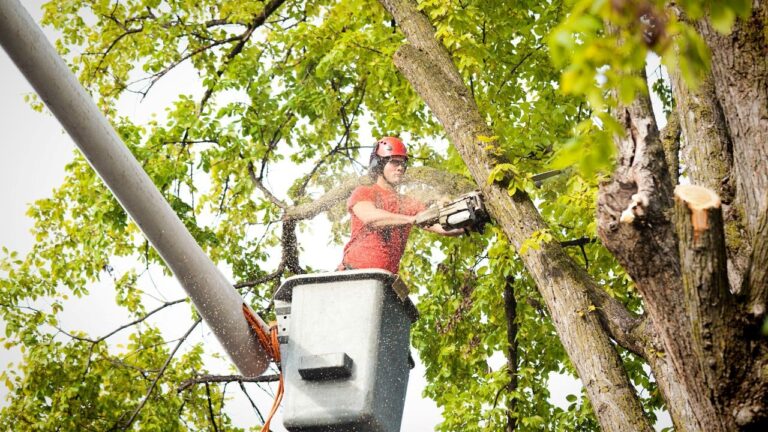How Breathalysers Promote Responsible Drinking
In today’s world, where socialising often involves alcohol, promoting responsible drinking has become imperative. Alcohol consumption, when done in moderation, can enhance social experiences and foster relaxation.
However, excessive drinking poses serious health risks and societal challenges. Breathalyser emerges as powerful tools in promoting responsible drinking by giving individuals immediate feedback on their blood alcohol concentration (BAC) levels. This blog post delves into the multifaceted role of breathalysers in fostering a culture of responsible alcohol consumption.
Understanding Breathalyzers
Breathalysers are devices designed to measure alcohol concentration in an individual’s breath. They operate on the principle of alcohol being absorbed into the bloodstream and then exhaled through the lungs. By analysing the alcohol content in exhaled breath, breathalysers estimate the individual’s BAC level.
Promoting Accountability
One of the primary ways breathalysers promote responsible drinking is by fostering accountability among individuals. Knowing that they can quickly assess their BAC levels before driving or engaging in potentially risky activities encourages individuals to take ownership of their alcohol consumption. This accountability discourages excessive drinking and reduces the likelihood of impaired driving incidents, thus enhancing public safety.
Educating on Limits
Breathalysers serve as educational tools, helping individuals understand their limits when it comes to alcohol consumption. By experiencing firsthand how their BAC levels correlate with their perceived level of intoxication, individuals gain valuable insights into how alcohol affects their bodies. This knowledge empowers them to decide when to stop drinking or seek alternative transportation methods.
Facilitating Social Norms
Breathalysers can facilitate the establishment of responsible drinking norms in social settings where alcohol is present. By making breathalyser testing a routine part of social gatherings, individuals are encouraged to monitor their alcohol intake more closely. This normalisation of responsible behaviour creates a culture where moderate drinking is celebrated while excessive consumption is discouraged.
Preventing Alcohol-Related Accidents
The use of breathalysers plays a crucial role in preventing alcohol-related accidents and tragedies. By enabling individuals to assess their sobriety levels before getting behind the wheel, breathalysers act as a deterrent against drunk driving. Studies have shown that the availability of breathalysers in public spaces, such as bars and restaurants, can significantly reduce the incidence of DUI (driving under the influence) offences.
Empowering Decision-Making
Beyond preventing immediate harm, breathalysers empower individuals to make responsible decisions about alcohol consumption in various contexts. Whether at social gatherings, sporting events, or parties, having access to a breathalyser encourages individuals to consider the consequences of their actions and prioritise safety. This empowerment fosters a culture of mindfulness and moderation in alcohol consumption.
Supporting Legal Compliance
Laws and regulations govern acceptable BAC levels for driving and operating machinery in many jurisdictions. Breathalysers aid individuals in complying with these legal requirements by providing a means to monitor their alcohol intake and ensure they remain within permissible limits. This reduces the risk of legal repercussions and promotes a sense of civic responsibility.
Shifting Attitudes and Behaviors
Breathalysers not only provide individuals with objective data about their alcohol consumption but also contribute to shifting societal attitudes towards drinking. By integrating breathalyser testing into social gatherings, workplaces, and entertainment venues, we normalise the practice of monitoring BAC levels and encourage responsible behaviour. Over time, this normalisation can lead to a cultural shift where excessive drinking is stigmatised and moderation is celebrated.
Moreover, the presence of breathalysers can challenge common misconceptions about alcohol intoxication. Many people underestimate their level of impairment after consuming alcohol, leading to risky behaviours such as driving under the influence. By accurately measuring BAC levels and correlating them with impairment, breathalysers provide a reality check, helping individuals recognise the dangers of excessive drinking and make safer choices.
Public Health Initiatives and Awareness Campaigns
In addition to their role in individual decision-making, breathalysers contribute to broader public health initiatives aimed at reducing alcohol-related harm. Government agencies, non-profit organisations, and advocacy groups can leverage breathalyser data to identify high-risk populations, target intervention efforts, and measure the effectiveness of prevention programs.
Breathalyser testing can also serve as a valuable tool in raising awareness about the risks associated with alcohol misuse. Public education campaigns highlighting the correlation between BAC levels and impairment can empower individuals to make informed decisions about drinking and driving. By disseminating accurate information about the consequences of impaired driving, these campaigns encourage behaviour change and promote safer communities.
Collaboration and Partnerships
The widespread adoption of breathalyzer technology requires collaboration among various stakeholders, including policymakers, law enforcement agencies, healthcare professionals, and alcohol industry businesses. These stakeholders play complementary roles in promoting responsible drinking and ensuring the effective use of breathalyser technology.
Policymakers can enact legislation to mandate using breathalysers in specific settings, such as bars, restaurants, and entertainment venues. They can incentivise businesses to provide breathalyser testing for their alcohol service offerings. By establishing clear guidelines and regulations, policymakers create an environment where responsible drinking is prioritised and enforced.
Law enforcement agencies can integrate breathalyser testing into roadside sobriety checkpoints and enforcement operations to deter drunk driving and hold offenders accountable. By demonstrating a commitment to enforcing DUI laws and promoting public safety, law enforcement agencies help reinforce the importance of responsible alcohol consumption.
Healthcare professionals can incorporate breathalyser testing into routine screenings and interventions for alcohol misuse. By identifying individuals at risk of alcohol-related harm and providing them with appropriate support and resources, healthcare professionals play a crucial role in addressing the underlying factors contributing to excessive drinking.
Businesses in the alcohol industry can partner with public health organisations to promote responsible drinking initiatives and implement harm reduction strategies. By prioritising consumer safety and providing access to breathalyser testing, businesses demonstrate their commitment to corporate social responsibility and contribute to building a positive drinking culture.
Conclusion
Breathalysers represent more than a technological innovation; they are catalysts for change in how we approach alcohol consumption and public health. By empowering individuals to monitor their alcohol intake, challenging societal norms, supporting public health initiatives, and fostering collaboration among stakeholders, breathalysers play a pivotal role in promoting responsible drinking and reducing alcohol-related harm. As we continue to harness the potential of breathalyser technology, we move closer to creating safer, healthier communities where alcohol is enjoyed responsibly, and the risks associated with excessive drinking are minimised.




